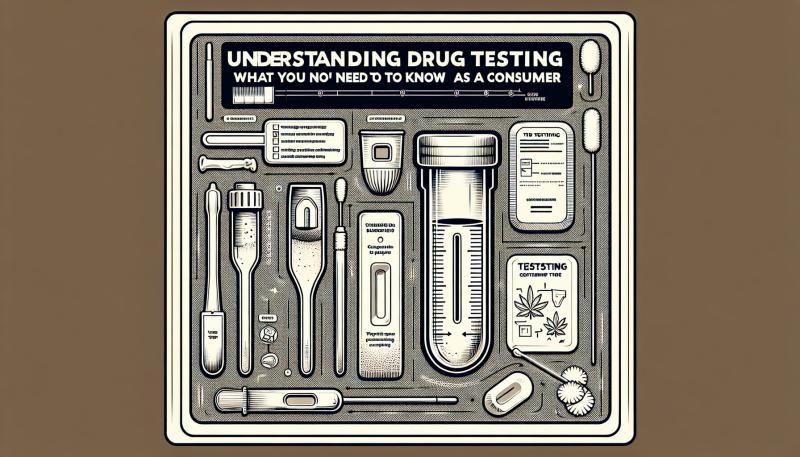
Understanding Drug Testing: What You Need to Know as a Consumer
In today’s world, drug testing serves as a crucial tool for ensuring safety, compliance, and health in various facets of life. Whether it’s for employment, legal compliance, or personal curiosity, understanding drug testing is essential. This comprehensive guide provides insights into the key aspects of drug testing that individual consumers should know.
What is Drug Testing?
Drug testing involves analyzing biological samples, such as urine, blood, hair, saliva, or sweat, to detect the presence of specific substances. These tests aim to identify drugs that could impair judgment, productivity, or health. Drug tests are commonly used by employers, law enforcement, parents, and even individuals themselves.
Types of Drug Tests
There are several types of drug tests, each designed to detect specific substances over varying periods. The most prevalent drug testing methods include:
- Urine Drug Testing: This is the most common testing method used by employers and sports organizations. It can detect recent drug use and provides a substantial window of detection for various substances.
- Blood Drug Testing: This method measures the actual presence of drugs in the bloodstream. Blood tests are often more accurate but have a shorter detection window, typically used in legal situations.
- Hair Drug Testing: Hair follicle tests provide a long detection window, up to 90 days, as they can unveil a history of drug use. They're generally used in pre-employment screenings.
- Saliva Drug Testing: Ideal for detecting recent drug use (within the past few hours to two days), saliva tests are non-invasive and often used in roadside testing.
- Sweat Drug Testing: These tests involve applying a patch to the skin for an extended period, providing results on drug use over that timeframe. They’re less common but useful for continuous monitoring.
Why is Drug Testing Conducted?
Drug testing serves multiple purposes across various sectors. Understanding these reasons can help individuals better prepare for possible testing scenarios:
- Employment Screening: Employers often conduct drug tests to ensure workplace safety, productivity, and compliance with industry regulations. Pre-employment and random testing help maintain a drug-free work environment.
- Legal and Forensic Testing: Drug tests may be required in legal contexts, such as probation monitoring, custody battles, or DUI cases, to ensure legal compliance and safety.
- Sports and Athletic Testing: Athletes undergo drug testing to maintain fairness in competition and to prevent performance-enhancing drug use.
- Personal and Medical Testing: Individuals may opt for drug testing for personal reasons or medical evaluations, such as ongoing treatment assessments or personal health monitoring.
Factors Influencing Drug Test Results
Several factors can affect drug test outcomes, so it’s crucial to consider these influences when preparing for a test:
- Type of Substance: Different drugs have varying detection windows, affecting how long they can be detected in the system. For instance, marijuana can be detected longer in the body compared to substances like cocaine or amphetamines.
- Usage Frequency: Regular or heavy users of a substance are more likely to have detectable traces for longer periods compared to casual or occasional users.
- Metabolism Rate: A person’s metabolism plays a significant role in how quickly substances are processed and eliminated from the body. Factors like age, genetics, and overall health can influence metabolism speed.
- Fluid Intake and Hydration: Hydration levels can impact the concentration of substances in urine samples. Consuming large volumes of water before a test may dilute the sample, potentially affecting test accuracy.
- Body Fat and Weight: Certain drugs, like cannabis, are lipophilic, meaning they can be stored in fat cells. Individuals with higher body fat content might retain these substances longer.
Choosing a Reliable Drug Testing Service
If you’re in need of drug testing services, choosing a trustworthy provider like IMS Screening Solutions is paramount. IMS Screening Solutions offers comprehensive drug screening services with a focus on accuracy, reliability, and confidentiality. Visit their website at IMSScreenings.com to explore their offerings and how they can assist you.
Preparing for a Drug Test
If you're about to undergo a drug test, whether for employment or personal reasons, there are several steps you can take to prepare:
- Understand the Test Requirements: Knowing what substances will be tested and the testing method used will help you prepare accordingly.
- Abstain from Substance Use: The most straightforward method to pass a drug test is to avoid any substance use leading up to the test, giving your body time to detoxify naturally.
- Documentation of Prescriptions: Certain medications can result in positive test results. Having documentation ready can help explain and validate medicinal use if needed.
- Hydration and Nutrition: Staying hydrated and maintaining a healthy diet can support your body’s natural detoxification processes.
- Stay Informed: Educate yourself on the testing process to alleviate anxiety or concerns and ensure you comply with all instructions during the procedure.
Conclusion
Understanding the nuances of drug testing is essential for consumers who may encounter these tests in various scenarios. By familiarizing yourself with the types of tests, reasons for testing, influencing factors, and preparation strategies, you can navigate drug testing with confidence. Whether it's for employment, legal, or personal reasons, being informed ensures you make the right choices and maintain a healthy, compliant lifestyle.
For comprehensive screening services, IMS Screening Solutions provides reliable, accurate, and confidential solutions for all your drug testing needs. For more information, visit imsscreenings.com.
